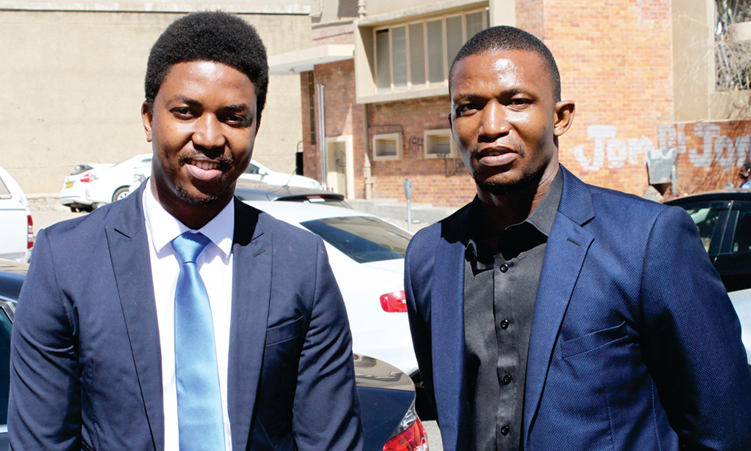The case in which investment scheme operator turned social activist Michael Amushelelo and a co-accused, Gregory Cloete, are charged with multiple counts of fraud has been postponed to September in the wake of a constitutional challenge of a section of the Criminal Procedure Act that was used to collect evidence in their matter.
The judgement on the constitutional challenge, on which three judges heard oral arguments in the Windhoek High Court on Tuesday, is scheduled to be delivered on 27 August.
In the meantime, deputy judge president Hosea Angula yesterday postponed Amushelelo’s and Cloete’s criminal case to 18 September.
Amushelelo, Cloete and a couple also facing fraud and other charges in a separate case in the High Court, Manga Nawa-Mukena and Joseph Mukena, are asking the court to declare the Criminal Procedure Act’s section 179(1)(b) unconstitutional.
The section gives police officers the power to give a written notice to someone that requires the person to attend criminal proceedings in a lower court and produce specified documents and other evidence.
Amushelelo, Cloete, Nawa-Mukena and Mukena are alleging the section is unconstitutional, because it is vague and violates the constitutional protection of privacy.
Addressing Angula and judges Nate Ndauendapo and Thomas Masuku, who heard arguments on the constitutional challenge on Tuesday, lawyer Kadhila Amoomo argued that the section can easily be misused, because it does not have sufficient safeguards, such as a requirement that a judicial officer should authorise a notice in terms of the section.
The section “breeds abuse”, and has already been abused to obtain bank records that are private, Amoomo argued.
He also reminded the court that prosecutor general Martha Imalwa has conceded, in an affidavit filed at the court, that the notices issued by the police to collect banking records in the two fraud cases did not comply with the provisions of the Criminal Procedure Act’s section that is being challenged.
On behalf of the prosecutor general, attorney general, minister of justice and the inspector general of the Namibian Police, who are cited as respondents in the case, lawyer Nixon Marcus argued that the actual issue before the three judges was whether evidence obtained through the use of the section in question would be admissible in the two pending criminal trials.
The admissibility of evidence collected during investigations by the police is an issue that should be decided during a criminal trial, and not in civil proceedings, Marcus argued.
He noted that even if evidence was obtained unconstitutionally, the criminal court still has the discretion whether to allow the evidence to be used during a trial, having regard for the fairness of the case.
On the facts before the three judges who heard the constitutional challenge, they are not in a position to exercise a judicial discretion whether the evidence obtained by the police should be ruled inadmissible, Marcus argued.
He suggested that the court should strike the four applicants’ constitutional challenge from the court roll, and leave it to Amushelelo, Cloete, Nawa-Mukena and Mukena to question the admissibility of evidence during their criminal trials.
Amushelelo (33) and Cloete (35) made their first pretrial appearance in their criminal case in the Windhoek High Court in September 2021.
The two men and four close corporations, a company and a trust controlled by Amushelelo are accused of having operated a Ponzi scheme, in which money was solicited from investors who were lured by promises of high returns on their investments, from September 2018 to October 2019.
The state is alleging that the money which investors entrusted to Amushelelo and Cloete, believing their funds were to be traded in foreign exchange markets, was not invested and that later investors’ money was used to pay back earlier ones’ funds.
The charges on which they are due to be prosecuted include 348 counts of fraud, alternatively theft by false pretences, one count of money laundering, a charge of racketeering, and counts of tax evasion.
The men are free on bail in an amount of N$35 000 each, which was granted to them after their arrests in October 2019.
Stay informed with The Namibian – your source for credible journalism. Get in-depth reporting and opinions for only N$85 a month. Invest in journalism, invest in democracy –
Subscribe Now!



Leave a Reply